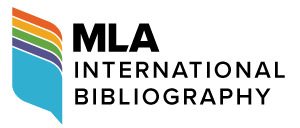Archives
-
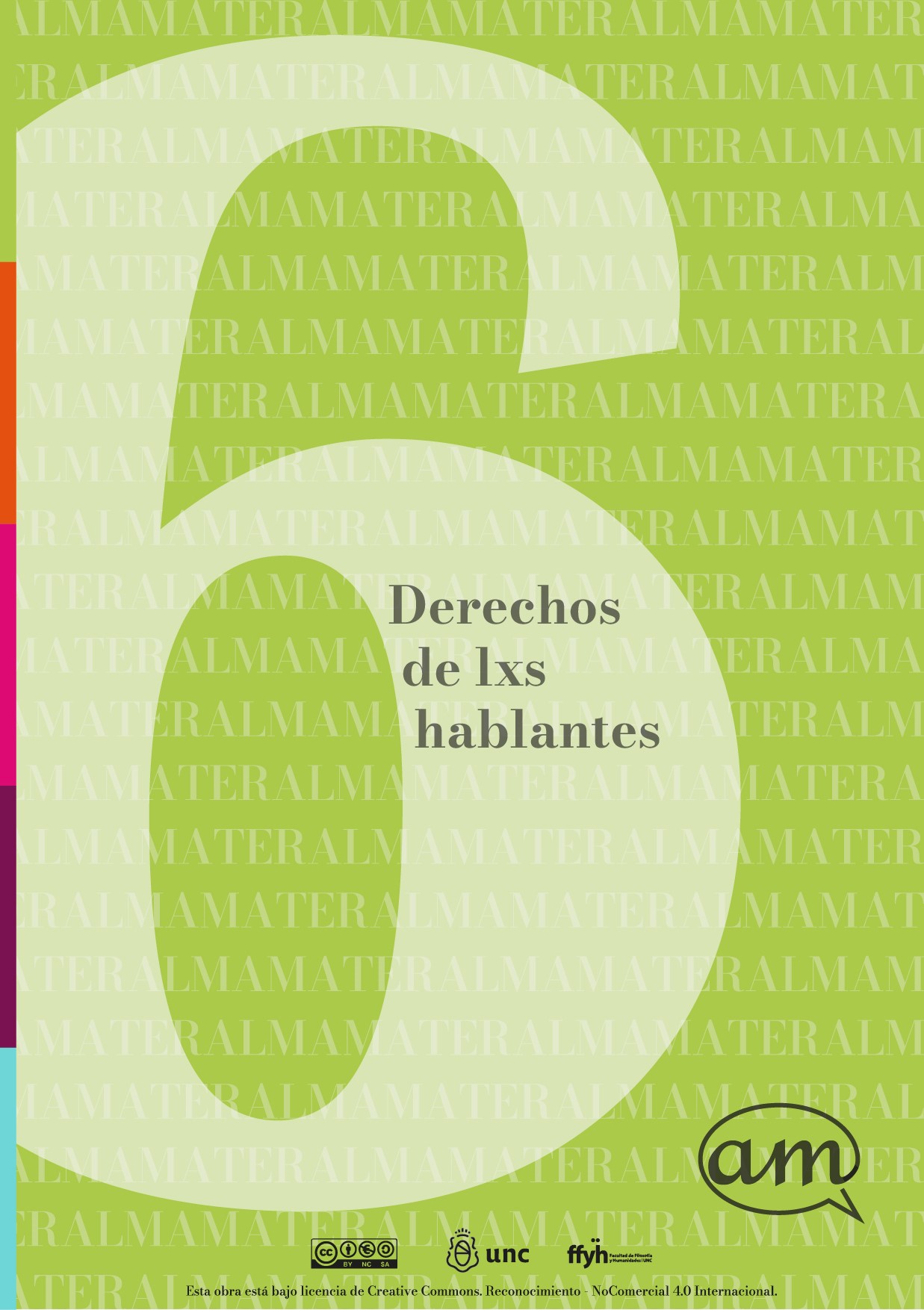
Speakers rights
No. 6 (2024)Given the context in which we find ourselves, in which declarations that violate our rights are commonplace, we are challenged by our discipline. As language researchers, we consider it relevant to bring up the discussion on linguistic rights as human rights and a fundamental part of people's identity, dignity and quality of life. The 1991 UNESCO declaration of linguistic rights recognizes that they are both individual and collective and, furthermore, defines a linguistic community as any group of people that “identifies itself as a people and has developed a common language as a means of natural communication and cultural cohesion among its members” (p. 23).
However, despite what this document states, it is undeniable that not all linguistic communities enjoy, in practice, the same rights. On a daily basis, we encounter problems such as the invisibilization of indigenous languages whose communities struggle for literacy and institutionalization in their languages, difficulties in legal regulations that should provide guarantees to citizens in the public sphere, the proliferation of discrimination and negative stereotypes of marginal languages and varieties in educational contexts, the legitimization of the teaching of European foreign languages to the detriment of other less valued languages, among others.
With this in mind, this new call also opens within the framework of the III International Meeting on Linguistic Rights as Human Rights: Insurgent Conversations. This space emerged at first as a response to the Congress of the Spanish Language in 2019, as a protest and denunciation of the actions that then violated the rights of speakers in favor of a prescriptivist monolingualism. In contrast, the Meeting proposes to restore the relevance of speakers and to conceive language as “a stratified territory in which rights, identities, genders, pedagogies and public policies are formed, shaped and can move, in short, ways of living the lives of bodies and communities” (Circular of the III International Meeting on Linguistic Rights as Human Rights: Ins/urgent Conversations).
-
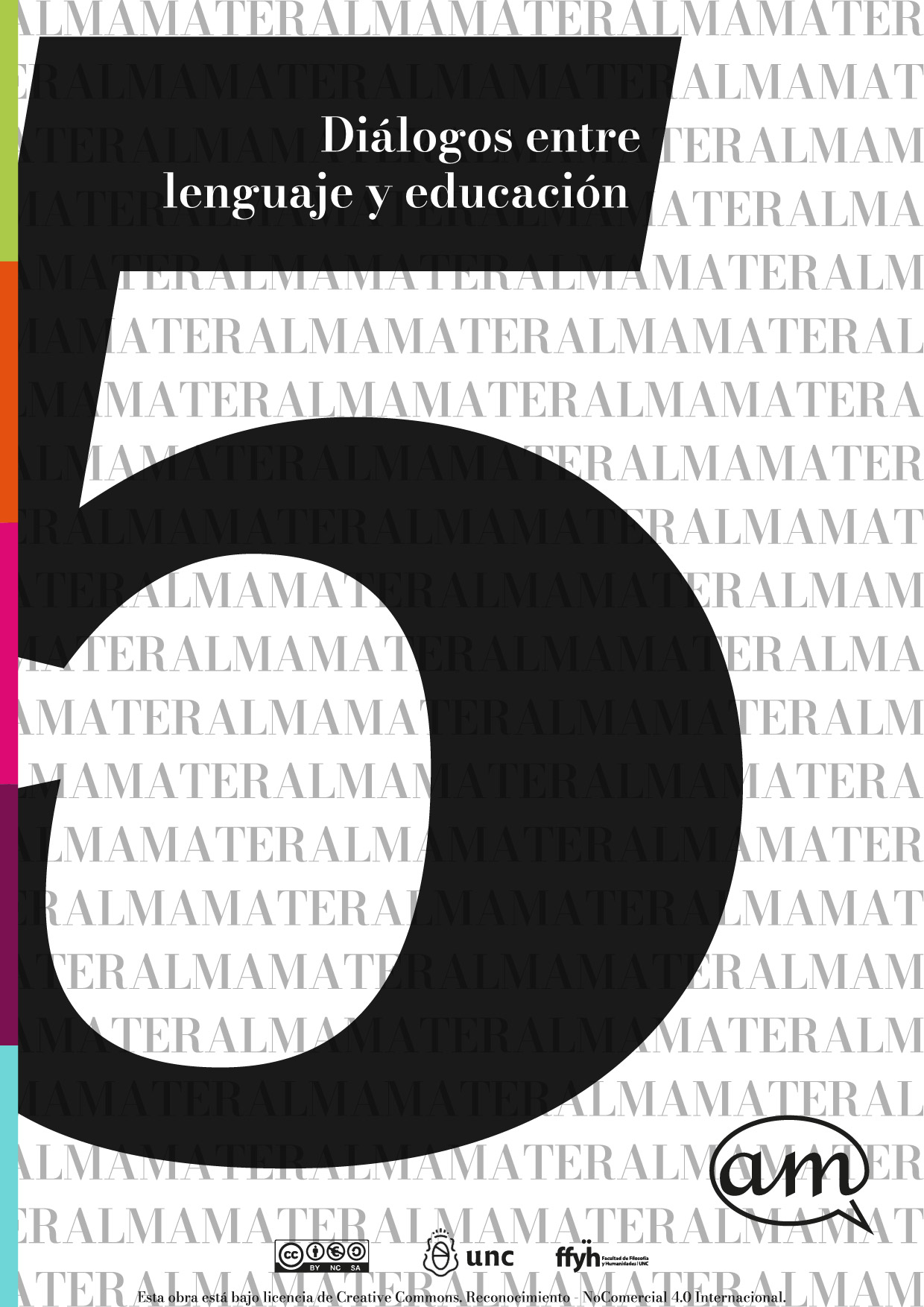
Dialogues between language and education
No. 5 (2023)Over the years, the study of languages has mutated, therefore, its application in teaching has also changed. Linguistics and educational sciences are two disciplines that are related from different positions and the link between language, teaching and learning proposes various topics that can be analyzed and interrelated. Among them, we find linguistic diversity and its entry into the school, the different approaches from which language can be taught and the teaching of foreign languages. This new issue of Alma Máter seeks to integrate texts with diverse theoretical approaches, problems and perspectives in order to continue enriching the dialogue on the relationship between linguistics and education.
-
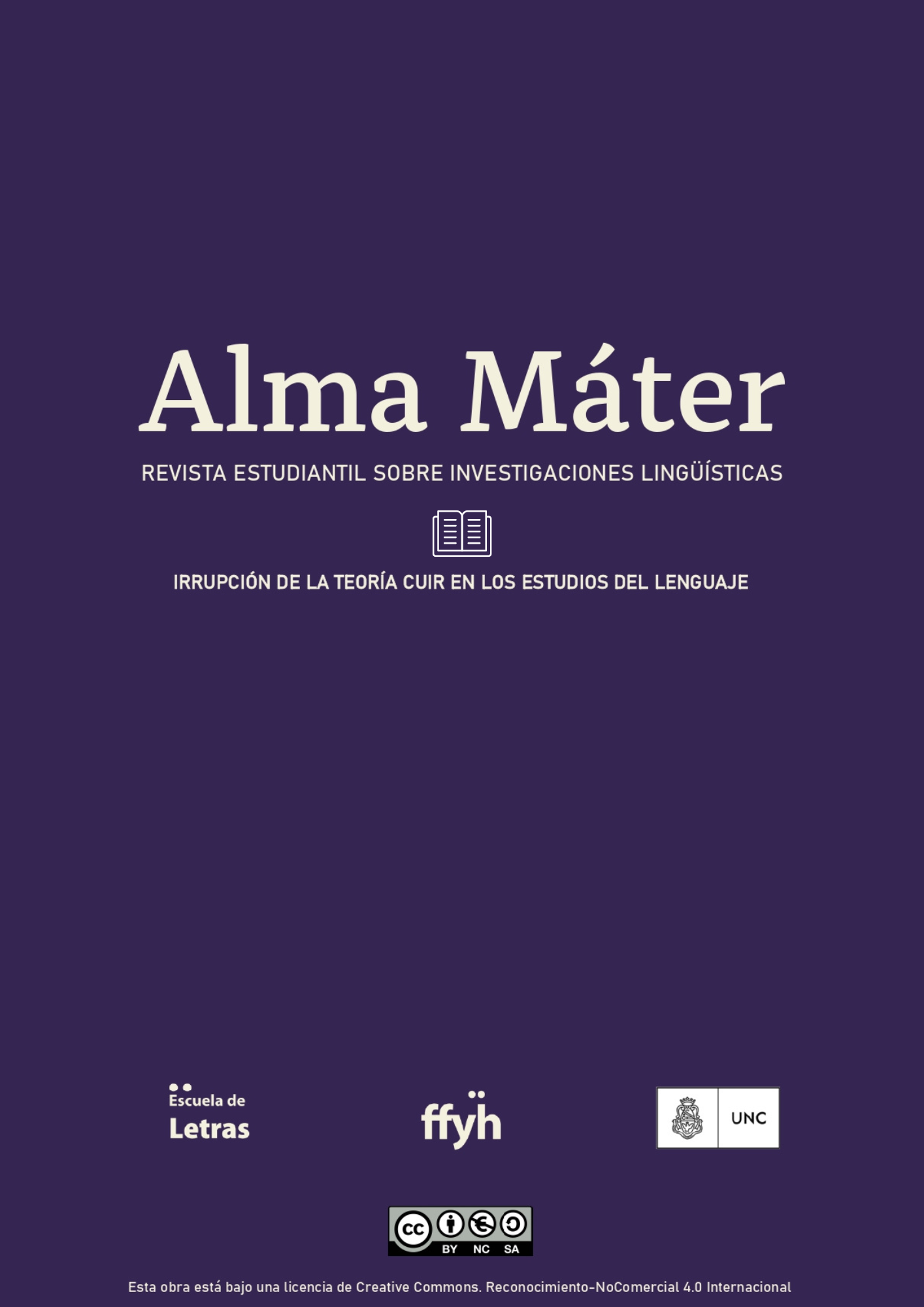
Irruption of queer theory in language studies
No. 4 (2023)The issue of this new volume of Alma Máter, the outbreak of cuir theory in language studies, proposes a recovery (coming up from another view, more extensive and disruptive) of the queries and concerns that cross our field of studies. While academic literature prominently cuir (instead of queer) is in its beginnings, some punctual contributions seek to review habits and traditions that, being part of Latin America, condition bodies, subjectivities, and identities, from and within the language. Rupture and diversity, the visibility of abject beings, and the challenge of the established logic are some of the constants that can be found. The reason behind all of them? Being able to re-think ourselves, watch ourselves again from a different perspective, and discover those nuances that (without us being always conscious of it) shape our reality.
-
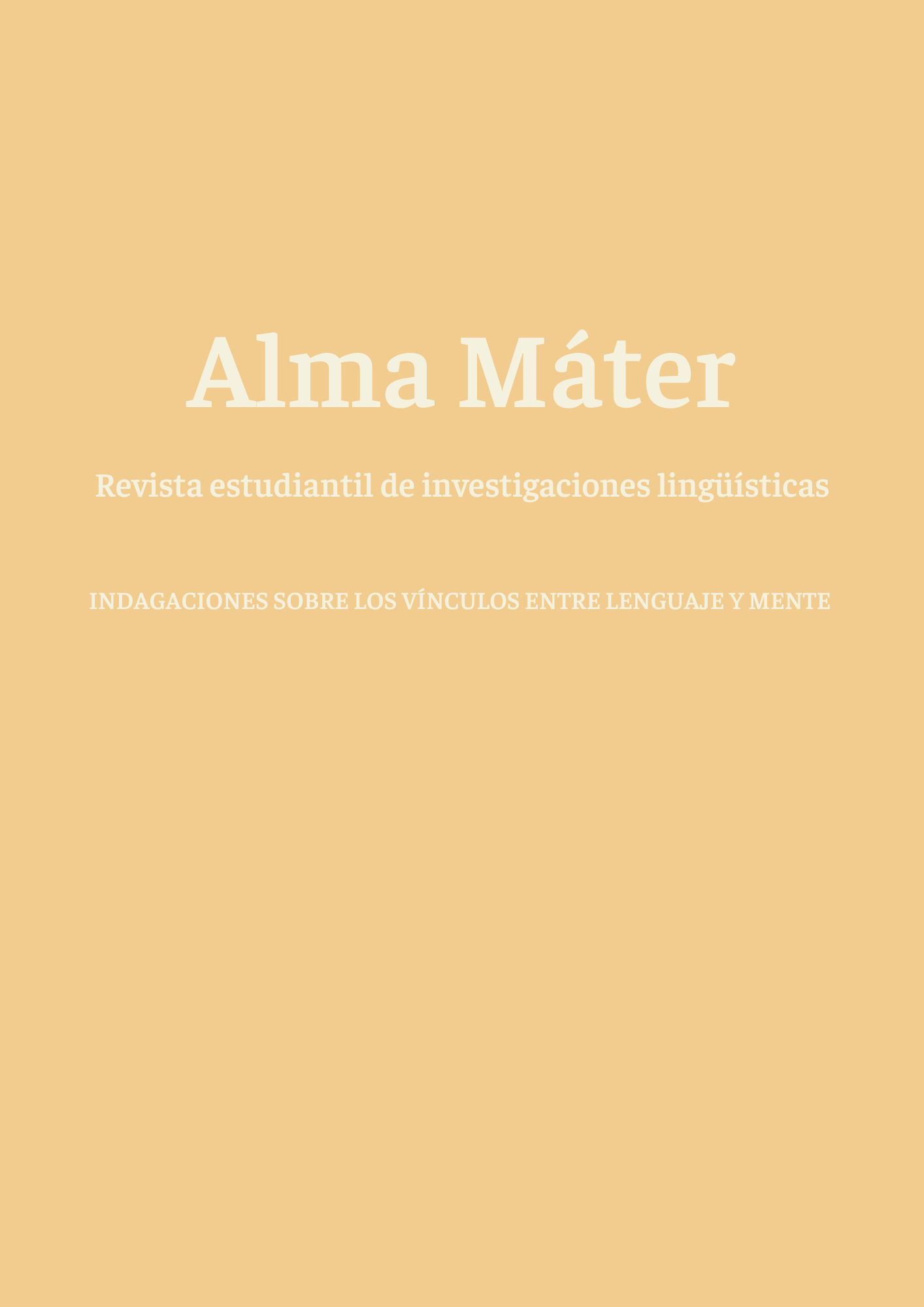
Indagaciones sobre los vínculos entre lenguaje y mente
No. 3 (2022)A lo largo de la breve trayectoria de la revista Alma Máter, uno de nuestros intereses ha sido dar cuenta de la apertura y diversidad de los estudios del lenguaje, cuyo objeto se puede abordar desde múltiples perspectivas, lo que da lugar a diferentes campos de investigación en lingüística. Una de las posibilidades que esta amplitud ofrece es priorizar los distintos aspectos del uso de la lengua, por ejemplo, prestando atención a fenómenos enmarcados en prácticas sociales y culturales específicas, ejes que guiaron nuestro número anterior. No obstante, hay un hecho particular que muchas veces damos por sentado cuando nos embarcamos en la ardua tarea de investigar prácticas lingüísticas y comunicativas: para que haya un mensaje, para que haya algo que decir, que pensar o que transmitir, es necesaria la preexistencia de un individuo. Un individuo y su mente.
-
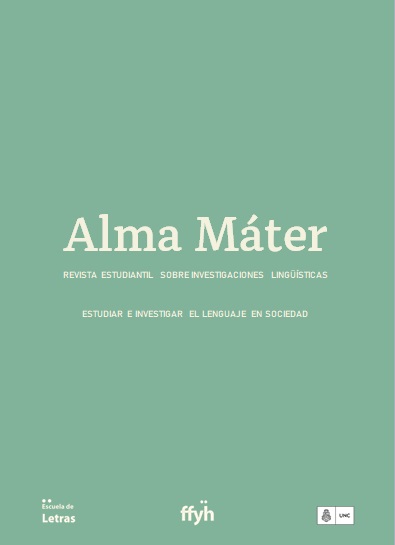
Studying and researching language in society
No. 2 (2021)"Agradezco a les estudiantes del equipo editorial de la Revista Alma Máter por la invitación a hacer la presentación de este segundo número, dedicado a la reflexión sobre el lenguaje en sociedad (o sociolingüística) campo complejo de conocimientos, con bordes poco perfilados, que incluye perspectivas y teorías disímiles, en continuo crecimiento. En efecto, la producción actual en el área es tan prominente que me animaría a afirmar que los grandes componentes teóricos que hace algunos años podíamos delinear (variacionismo, etnografía de la comunicación, sociología del lenguaje) hoy se desdibujan y se entrecruzan hasta el punto que resultaría casi imposible realizar un paneo, así sea esquemático, que recupere todos los problemas que podrían incluirse en este campo disciplinar.
El eje de esta presentación ―Estudiar e investigar el lenguaje en sociedad‖, significa todo un desafío pues, según percibo, esta es hoy una de las áreas más potentes e innovadoras de la lingüística actual. Me gustaría desplegar esta idea, aunque sea superficialmente, a partir de tres reconocimientos que dan las claves, a mi entender, de la relevancia de esta disciplina que llamamos, un poco imprecisamente, sociolingüística".-Beatriz Bixio
-
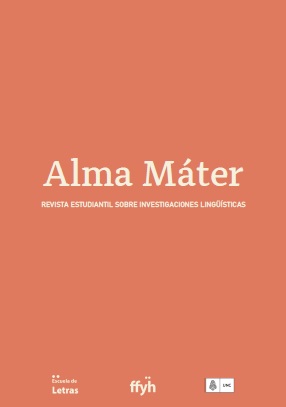
Language science within intertextuality.
No. 1 (2021)Para esta primera entrega, planteamos el eje Ciencias del lenguaje en el marco de la intertextualidad: pensando la lingüística en relación. Esta propuesta nos permitió ampliar nuestro campo de estudio específicamente lingüístico para trascender a un campo interdisciplinario, en el que otros espacios, disciplinas y textualidades toman a la lingüística como punto de encuentro. Los artículos de esta edición fueron producidos por estudiantes de diferentes universidades del país y recorren cruces con el análisis del discurso, la educación y el derecho, como así también encuentros entre diversas teorías y ramas de las ciencias del lenguaje, tales como la lexicografía, la sociolingüística, las ideologías lingüísticas y la gramática, buscando plasmar parte del carácter poliforme que caracteriza a la lingüística, desde sus comienzos. Buscamos, así, que Alma Máter abra también nuevas puertas a alumnxs de nuestra y otras universidades que, sin estudiar específicamente el lenguaje, se sientan también fascinados por él. Siendo nuestro eje principal en esta entrega la lingüística en relación, podemos nombrarlo también nuestro objetivo: trazar relaciones, puntos de contacto, entre estudiantes, escuelas, puntos de vista, ideas... todo a través de las palabras.




